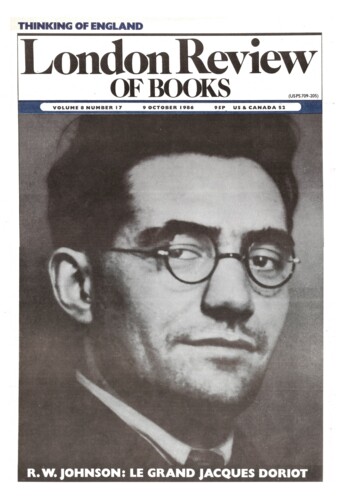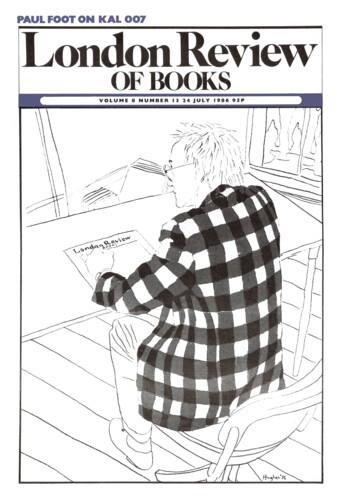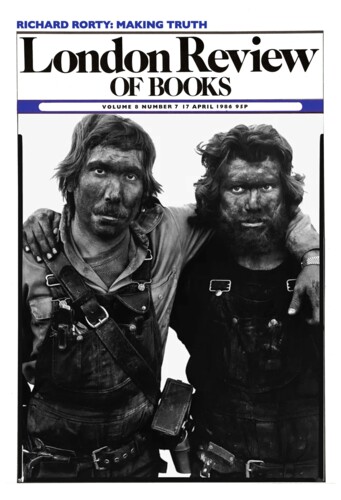Paul Addison
Paul Addison, who died in 2020, taught history at Edinburgh, where he directed the Centre for Second World War Studies. His books include The Road to 1945 and two biographies of Churchill.
Getting on
Paul Addison, 9 October 1986
Here are two books about the relationship of the English to their past. According to Patrick Wright, England is a reactionary society burdened by a false mystique of national identity. To dissolve that mystique must be one of the first priorities of democratic socialists in establishing an alternative society with a renewed faith in its capacity for progress. At the opposite pole of politics, Maurice Cowling abhors the secular modernity of contemporary England and the apostasy of its people from the Anglican faith of Charles I and Archbishop Laud. Given the chance, he would restore in modern dress the divine right of kings and the doctrinal authority of a state church preaching supernatural Christianity.
Upper-Class Casualties
24 July 1986
Warfare and Welfare
Paul Addison, 24 July 1986
Everyone knows that over the past century Britain has declined as a great power. But Correlli Barnett is one of the very few historians with a compelling, personal vision of the reasons why. Most of us assume that in a general way the process was inevitable, since the Empire was too big, and the economy too small, to sustain the role of a great power in the 20th century. Barnett, however, believes the decline could have been arrested or even reversed but for the peculiar decadence and irresponsibility of the British governing class.
Darling Clem
17 April 1986
Pieces about Paul Addison in the LRB
‘We’re Not Jittery’: Monitoring Morale
Bernard Porter, 8 July 2010
When Chamberlain took the British to war in September 1939, he had little idea of how they would respond. Very few of those in authority did. In their introduction to this important collection of...
Sunny Days
Michael Howard, 11 February 1993
Peter Hennessy has chosen for the dust jacket of Never Again a picture that exactly captures the mood of 1945. A returning British serviceman is being welcomed home by his wife and small son....
Outbreak of Pleasure
Angus Calder, 23 January 1986
Towards the end of the Second World War, the Common Wealth Party produced a striking leaflet – ‘Again?’ – to play on the widespread fear among British voters that victory...
Read anywhere with the London Review of Books app, available now from the App Store for Apple devices, Google Play for Android devices and Amazon for your Kindle Fire.
Sign up to our newsletter
For highlights from the latest issue, our archive and the blog, as well as news, events and exclusive promotions.



